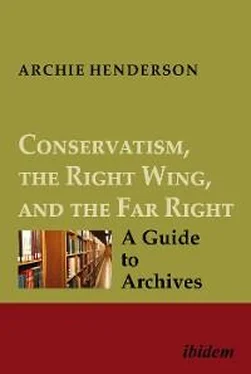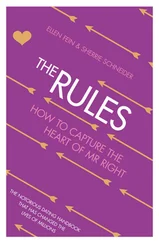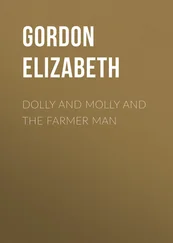http://lib.msstate.edu/specialcollections/collections/manuscripts/afam/
[0579] Civil Rights Movement in North Carolina from the 1950s to the 1970s [digital collection]
Location: State Archives of North Carolina, 109 E. Jones St., Raleigh, N.C. 27601
Description: This digital collection contains materials related to the Civil Rights Movement in North Carolina from the 1950s to the 1970s, including letters, speeches, reports, booklets, photographs, news clippings, court records, and proposed legislation. Topics covered include school desegregation and busing, voting rights, and civil rights protests and demonstrations. Includes N.C. House Bills (1955-1956) which tried to preserve racial segregation in public schools even after the Supreme Court's decision in the case of Brown v. Board of Education; North Carolina's Public Schools Face a Crisis (Governor's Committee for the Public School Amendment, 1956), a brochure encouraging North Carolina voters to vote for a constitutional amendment to suspend public schools in order to prevent forced integration; Address by Governor Luther H. Hodges of North Carolina on State-Wide Radio-Television Network, August 8, 1955, on the topic of public schools and segregation, expressing his views opposing racial integration; The Segregation Problem in the Public Schools of North Carolina, Summary of Statements and Actions by Governor Luther H. Hodges, March 25, 1956 (1956); and Assorted Clippings on School Segregation, 1950s -1960s.
Websites with information:
http://ncarchives.wordpress.com/2014/02/05/civil-rights-movement-digital-collection/
Finding aids:
http://digital.ncdcr.gov/cdm/home/collections/civil-rights
http://digital.ncdcr.gov/cdm/search/collection/p16062coll17/display/200/order/date/ad/asc
[0580] Civil Rights Movement scrapbooks. Alabama events, 1950-1969 [digital collection]
Location: Birmingham Public Library, 2100 Park Place, Birmingham, AL 35203-2794
Description: Over the years Birmingham Public librarians collected newspaper articles about the Civil Rights Movement in Alabama and arranged them in eight scrapbooks. The articles were clipped from several newspapers including The Birmingham News, Birmingham Post-Herald, and the Montgomery Advertiser. Topics covered include bus segregation ordered halted by Interstate Commerce Commission; Montgomery bus boycott; attempts at school desegregation; Supreme Court rules bus segregation is unconstitutional; and George Wallace defiance.
Websites with information:
http://bpldigital.blogspot.com/2010/05/alabama-civil-rights-1950-1969.html
Finding aid:
http://bplonline.cdmhost.com/cdm/search/collection/BPLSB02/searchterm/Civil%20Rights%20Movement%
20scrapbooks.%20Alabama%20events/field/title/mode/all/conn/and/cosuppress/
[0581] Civil Rights Movement scrapbooks. Mississippi events, 1948-1968 [digital collection]
Location: Birmingham Public Library, 2100 Park Place, Birmingham, AL 35203-2794
Description: Over the years Birmingham Public librarians collected newspaper articles about the Civil Rights Movement in Mississippi and arranged them in three scrapbooks. The articles were clipped from several newspapers including The Birmingham News, Birmingham Post-Herald, and the Montgomery Advertiser. Topics covered include Governor Ross Barnett bars James H. Meredith from "Ole Miss" and University of Mississippi rioting.
Websites with information:
http://bpldigital.blogspot.com/2010/05/mississippi-civil-rights-1948-1968.html
Finding aid:
http://bplonline.cdmhost.com/cdm/search/collection/BPLSB02/searchterm/Civil%20Rights%20Moveme
nt%20scrapbooks.%20Mississippi%20events%20volume/field/title/mode/exact/conn/and/cosuppress/
[0582] Civil Rights Movement scrapbooks, National events, 1945-1969 [digital collection]
Location: Birmingham Public Library, 2100 Park Place, Birmingham, AL 35203-2794
Description: Over the years librarians of the Birmingham Public Library collected newspaper articles about the Civil Rights Movement and arranged them in twelve scrapbooks. The articles were clipped from several newspapers including The Birmingham News, Birmingham Post-Herald, Montgomery Advertiser, and The Tuscaloosa News. Topics covered include Georgia "White Supremacy" Bill; Truman Civil Rights proposals; Southern reaction to Truman proposals; MacArthur speech to Congress; Eisenhower State of the Union Address; racial violence in Tennessee; Kentucky racial problems; bus boycott in Montgomery, Alabama ends; Texas defies integration plans; Florida, Louisiana, Arkansas vow to continue segregation; civil rights bill approved; Georgia defies federal integration policy; Little Rock, Arkansas asks halt to integration; Virginia and Arkansas to defy integration; Governor John Patterson of Alabama warns Congress on civil rights; Atlanta, Georgia ordered to form integration plan; racial violence in Little Rock, Arkansas; peaceful integration in North Carolina and Virginia; New Orleans, Louisiana defies integration; racial violence in Greenville, South Carolina; Jacksonville, Florida racial violence; racial violence in New Orleans, Louisiana; Freedom Riders assailed by MacDonald Gallion; U.S. Marshals ordered into Alabama; Freedom Riders linked to Communist Cuba; "Reverse Freedom Riders"; Albany, Georgia racial violence; school desegregation continues throughout the South; federal judge orders University of Mississippi to admit James H. Meredith; Civil Rights Bill of 1963; civil rights murder case in Mississippi [Byron de la Beckwith]; Lester Maddox cafeteria goes out of business; and Birmingham, Alabama bombings.
Websites with information:
http://bpldigital.blogspot.com/2010_04_01_archive.html
http://bpldigital.blogspot.com/2010/04/united-states-civil-rights-1947-1969.html
http://www.bplonline.org/virtual/ContentDMSubjectBrowse.aspx?subject=African%20Americans--Civil%20Ri
ghts--United%20States
Finding aid:
http://bplonline.cdmhost.com/cdm/search/collection/BPLSB02/searchterm/Civil%20rights%20movement%2
0scrapbooks.%20national%20events%20volume/field/title/mode/all/conn/and/order/date/ad/f/cosuppress/
[0583] The Civil Rights Oral History Project Collection, 2002- [oral history; partly digital collection]
Location: Special Collections Division, Nashville Public Library, 615 Church Street, Nashville, TN 37219
Description: The collection includes audiocassettes, videocassettes, and transcripts of oral history interviews conducted by library staff and volunteers. Interviewees are civil rights veterans, educators, community members, journalist, police officers, observers, students, church leaders, and activists recalling events related to the civil rights movement in Nashville and the nation during the 1950s and 1960s. There are one hundred and twenty interviews and seventy-nine of these are transcribed. Includes a recorded interview with Bobby Cain, one of the "Clinton 12," and the first student to desegregate public schools in the South.
Websites with information:
http://www.library.nashville.org/localhistory/his_spcoll_coll_findingaids.asp
http://www.library.nashville.org/localhistory/findingaids/special_Collections_Division_Finding_Aid_Civil_Right
s_Collec.pdf
Finding aid:
http://www.library.nashville.org/localhistory/findingaids/Special_Collections_Division_Finding_Aid_CROHP.pdf
Finding aids to Nashville Public Library Digital Collection with excerpts of oral history interviews:
http://digital.library.nashville.org/cdm/landingpage/collection/nr
http://digital.library.nashville.org/cdm/search/collection/nr
[0583a] Kit Clardy Papers, 1950-1954, c.00278
Location: University Archives & Historical Collections, Michigan State University, Conrad Hall, 888 Wilson Road, Rm. 101, East Lansing, MI 48824-1327
Description: Kit Clardy (1892-1961), an East Lansing lawyer, was elected to represent Michigan's 6th district in Congress in 1952, serving one term. During his term, Clardy served on the House Un-American Activities Committee, concentrating his efforts on removing all Communist influences from American life. He brought a sub-committee to Michigan to investigate Communist activities in the state, particularly in the labor unions. This collection contains campaign literature, letters to constituents, newspaper clippings, and weekly "Washington Reports", which described Clardy's work to his constituents.
Читать дальше












